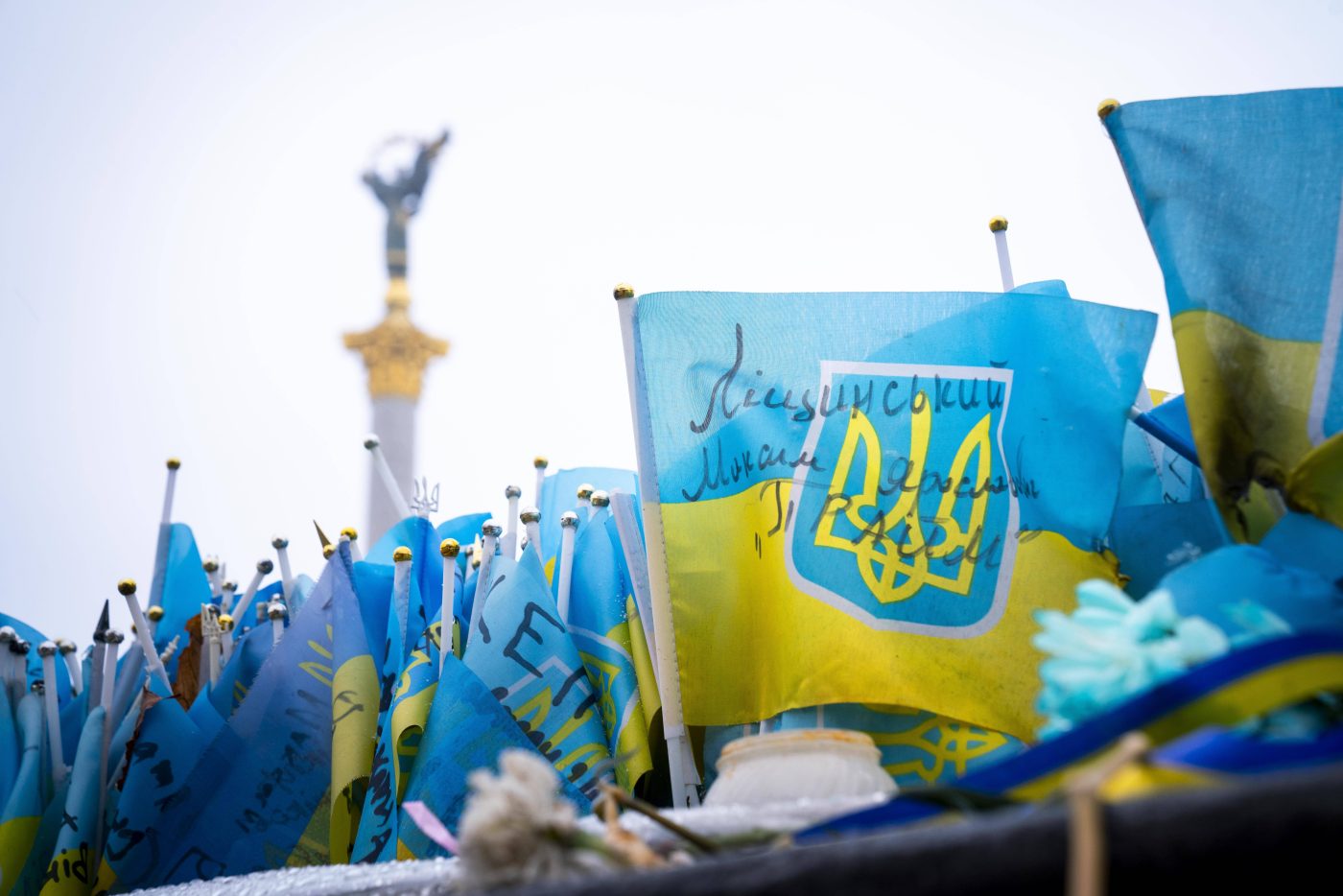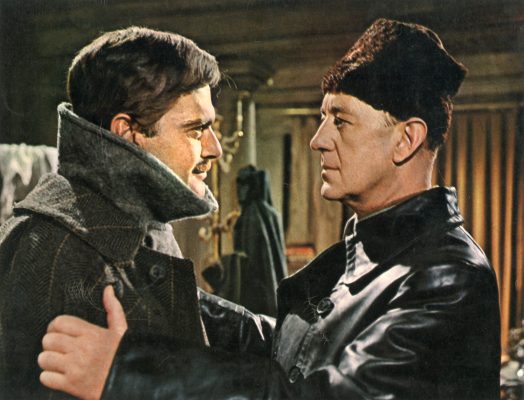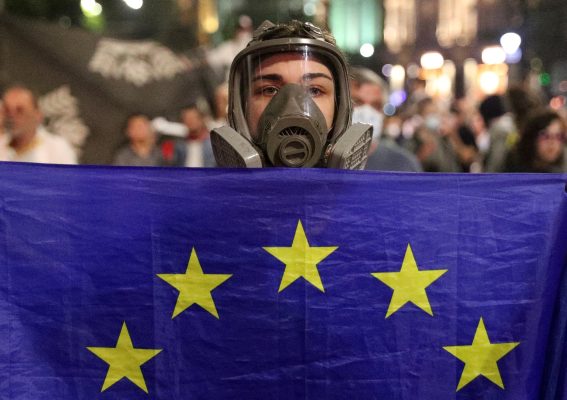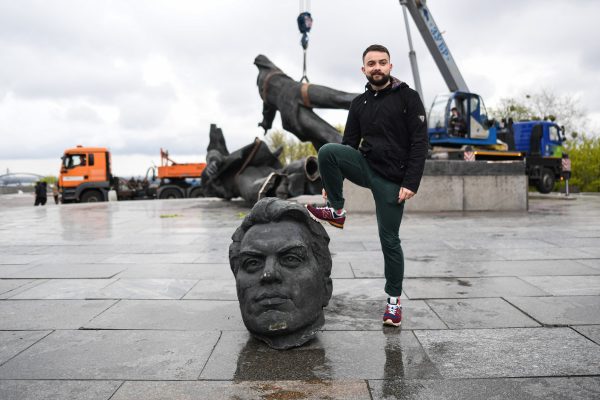This annual report from the Center for European Policy Analysis’s (CEPA) International Leadership Council (ILC) — a high-level group of experts and decision-makers with decades-long experience in strategy and geopolitics — lays out the core security priorities for the transatlantic alliance.
CEPA’s ILC proposes the following six priorities for the transatlantic alliance in 2024.
- NATO’s Washington Summit — Demonstrate Resolve
- The European Union — Meet the Challenge
- Ukraine’s Future — Determination and Unity
- Contain Russia — Cripple the Kremlin’s War Machine
- Constrain China — Stronger, Faster, Wider
- Embrace the “Global South”
Executive Summary
The post-Cold War US-led alliance in Europe is threatened as never before, chiefly by Russian imperialism and China’s rise. After a 30-year time-out, and a long overdue wake-up call following Russia’s full-scale invasion of Ukraine on February 24, 2022, NATO is reenergized, but the alliance still has a long road ahead to rebuilding defense and deterrence. Achieving these goals will require continuing investment from all NATO members as well as a future-facing vision for the alliance.
But a stronger and more balanced transatlantic security relationship also depends on European allies grasping and aligning two wider threats where Europe has a key role to play together with the United States:
- Competition with the Chinese party-state, and
- Declining Western credibility and influence in the “Global South.”1
CEPA’s International Leadership Council members see a daunting outlook, but a great prize.
Winning the war in Ukraine is key to addressing the abovementioned threats. Ukraine’s victory will give the United States a far better chance of gaining the allies and prestige it needs to win against China.
Ensuring that Ukraine wins the war, and then the peace, is foundational to coping with the threats. Talk of land-for-peace negotiations with Russia is misplaced. A deal might pause the fighting in the short term but will not stop it in the long term. There is no alternative to the strategic defeat of Russia, just as there is no alternative to durable peace in Europe other than securing NATO and EU membership for Ukraine. Any appeasement of Russia will lead to the next crisis. A Europe whole, free, and at peace is only possible with a secure and prosperous Ukraine.
Moreover, Russia’s war on Ukraine is not a distraction from the US effort in the Indo-Pacific or elsewhere, including the Middle East. On the contrary, the future of US global leadership and broader Western legitimacy depends on success in Ukraine. NATO allies’ cooperation in supporting Ukraine is consistent with our collective shared values and strengthens alliances, improves deterrence, and boosts capability, not just in Europe, but wherever the United States faces great-power competition or rogue-state challenges.
In pursuit of these goals, this report offers six specific priorities for the coming months, aimed at decision-makers in the United States, NATO, the European Union (EU), and allied member governments.
1. NATO’s Washington Summit — Demonstrate Resolve
In the run-up to NATO’s Washington Summit in July 2024, the alliance must make clear that it is unwaveringly committed to a Ukraine that is free, independent, secure, and victorious. Securing Ukraine boosts alliance cohesion and US credibility — vital elements in preventing additional Russian aggression and deterring the further rise of the Chinese party-state.
The United States and its allies must use the NATO summit to send a clear signal to Russia that Ukraine’s place is in NATO. Allies must also use the historic 75th-anniversary summit to lock in members’ support for defense and counteroffensive operations, providing weapons, equipment, munitions, training, and other resources to help Ukraine. The main emphasis, however, should be on the political backing of commitments and for a clear membership path for Ukraine. Further objectives should be to:
- Prevent further Russian attacks;
- Degrade Russian logistics;
- Erode Kremlin control; and, ultimately,
- Regain all Russian-occupied territories, including Crimea.
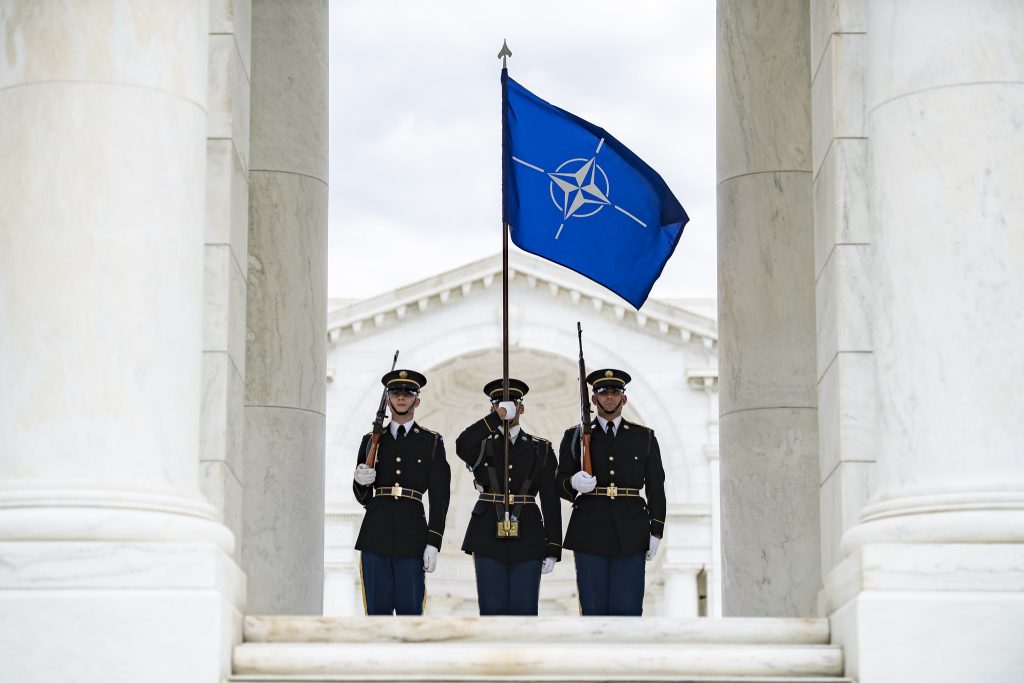
Assistance to Ukraine should include more long-range precision-strike assets and missiles, air defense systems, heavy armor, and fighter jets. Dithering and incremental support has cost Ukrainian lives and has given Vladimir Putin hope. Further delay will cost more and could include the fraying of the US-led coalition. The previous NATO summit in Vilnius in 2023 lacked resolve; the Washington summit must demonstrate it. The security guarantees for Ukraine and a speedy, irreversible path to NATO membership must be set in stone.
More broadly, rebooting and restoring deterrence are the alliance’s top priorities. Putin’s attack on Ukraine reflected a failure of deterrence, as does Russia’s continued military aggression and escalating gray-zone attacks on NATO countries, and the Kremlin’s support for terrorists and other hostile actors in the Middle East. The defense plans agreed at Vilnius are a useful start, but without the necessary assigned forces, stockpiles, bases, and exercises those plans will appear hollow. The alliance has yet to revise its nuclear posture in the face of the changing strategic landscape.
2. The European Union — Meet the Challenge
The European Union (EU) must move faster to develop the geopolitical capability and ambition to match its economic and rule-setting clout, sharing the burden of alliance security with the United States, and becoming Europe’s security backbone. However, the EU and NATO should not compete on security issues. Instead, they should be complementary. The EU should not duplicate NATO’s military structures but rather continue the very good division of labor with NATO. In addition, as US resources and attention are needed in other conflicts and regions, Europe will need to step up even more to provide the economic assistance and investment for Ukraine’s reconstruction and recovery. The EU’s €50 billion package for Ukraine, while long in the making, is a landmark success, but much more lies ahead.
This includes:
- More investment in the off-budget €12 billion ($11.3 billion) European Peace Facility to source ammunition and other needed equipment and matériel;
- Boosting the defense-industrial complex to match Russia’s war economy;
- Eliminating “gray zones” in Europe’s neighborhood by expediting Ukraine’s EU accession progress, closely followed by Moldova and the countries of the Western Balkans, and developing an EU strategy for the Black Sea region;
- Focusing EU and member states’ attention on resilience at all levels, including civil-military cooperation, supply-chain diversification, cybersecurity, and the protection of critical infrastructure;
- Appointing a high level and politically empowered Special Representative for Ukraine’s Economic Recovery to coordinate EU-wide economic assistance in close collaboration with the US; and
- Shouldering more of the burden in competing with China. Europe and the United States are competing with China on the basis of collective shared values while acknowledging sometimes divergent interests. Both sides of the Atlantic must, therefore, shoulder the burden of this competition.
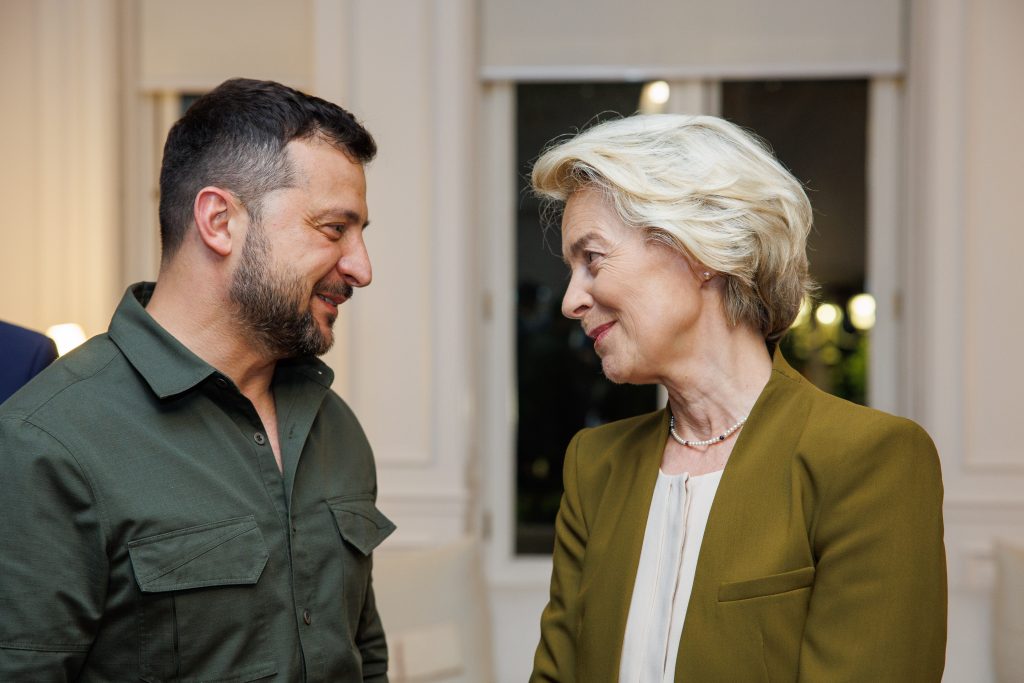
Depending on the outcome of the US elections in 2024, and likely further prioritization of Indo-Pacific security by future US administrations, European allies will need to consider more radical changes on defense planning and political decision-making, including the involvement of a post-Brexit Britain. This will include greater contributions to stockpiles and military mobility, demanding and realistic military exercises, rethinking nuclear doctrine, and improving whole-of-society resilience to gray-zone attacks. The EU must reform itself to strengthen its capacity to act. Countries seeking membership must not be held hostage to EU reforms. The EU must take more decisions by qualified majority voting in the area of Common Foreign and Security Policy, including a policy on sanctions.
Greater European support for US priorities in the Indo-Pacific region, including investing more aggressively in technological competitiveness, securing supply-chain resilience, and building new coalitions and alliances, will be the best guarantees of continuing US support to Europe.
3. Ukraine’s Future — Determination and Unity
NATO and the EU must educate and inform the Western public about the need to broadly support Ukraine. This support should include anti-corruption programs, strengthening media freedom, and effecting civil-society reforms within Ukraine. Judicial, regulatory, administrative, and civil-society institutions also need to be established for Ukraine’s EU membership.
European support for Ukraine remains strong, with decision-making overcoming — albeit with lamentable delays — Hungary’s obstructionist tactics.
US support for Ukraine has not always been matched by clear, consistent public messaging about why the war matters to Americans. US President Joe Biden’s Oval Office speech on US leadership was welcome but belated.2 It remains important to underline repeatedly why and how the United States is supporting Ukraine, including that the bulk of US aid to Ukraine is spent within the United States on defense-industrial production, a little-known fact Americans should fully understand.
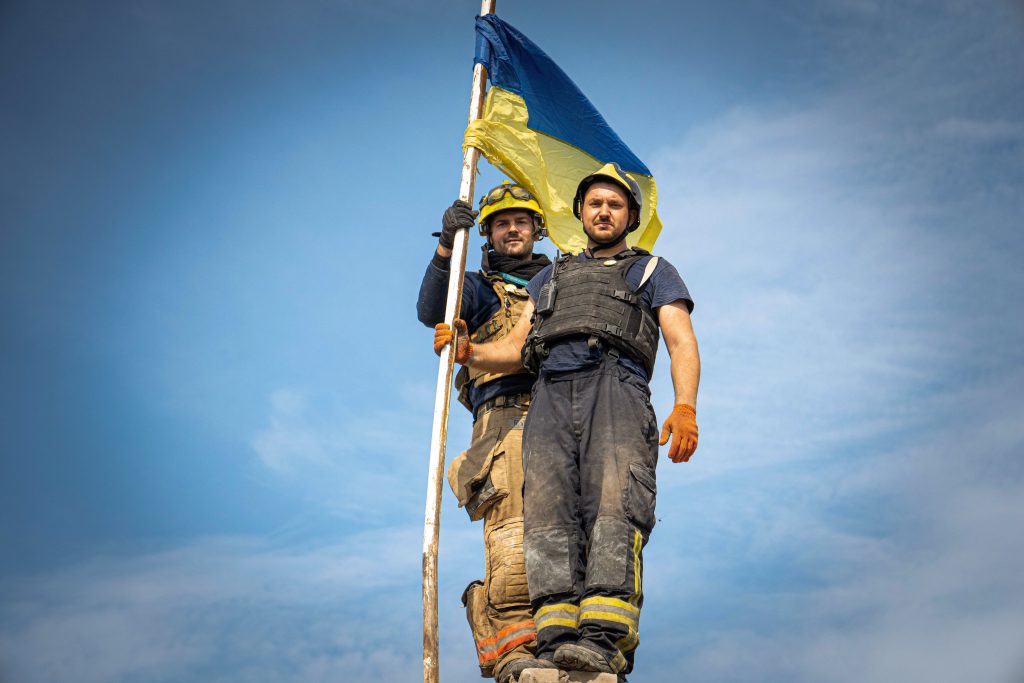
The United States could also do more to counter disinformation and propaganda designed to undermine support for Ukraine. It should make the following points:
- NATO membership for Ukraine will not spark a nuclear conflagration;
- Russia’s defeat does not mean instability, disintegration, and loose nukes;
- Support for Ukraine does not undermine deterrence of China; and
- Ukraine fatigue is not rampant.
Economic objectives include:
- Seize and distribute $320 billion in frozen Russian assets to rebuild Ukraine and pay for war damages;
- Secure export routes for Ukrainian bulk commodities, chiefly grain; and
- Provide robust and resilient protection of critical infrastructure, particularly transport, power, and heating systems.
Ukraine’s postwar economic success will require substantial private as well as public investment in the country. Private investors will closely scrutinize political and other risks before making final investment decisions. This is why strong bilateral and multilateral defense ties, including NATO membership for Ukraine, will be crucial for creating the necessary investment climate.
4. Contain Russia — Cripple the Kremlin’s War Machine
Western pressure on Russia so far has been insufficient. The Russian economy has proved more resilient than optimists had hoped. Sanctions evasion is rife. Political opposition inside Russia is minimally effective. Western media largely fails to penetrate the Russian information space. And, so far, attempts to build a strong community of Russian political exiles, or émigrés, have been largely unsuccessful, but the goal is to have a more attractive and clear agenda that can become a real foundation for strengthening the community. The ILC, therefore, suggests:
- Intensifying sanctions pressure on Russia, particularly in the maritime domain;
- Systematically countering harmful narratives, such as Western “Ukraine fatigue,” which fuel Kremlin propaganda;
- Raising pressure on countries that do not enforce sanctions on Russia; and
- Increasing political warfare, overt and clandestine, in order to ramp up pressure on the Kremlin.
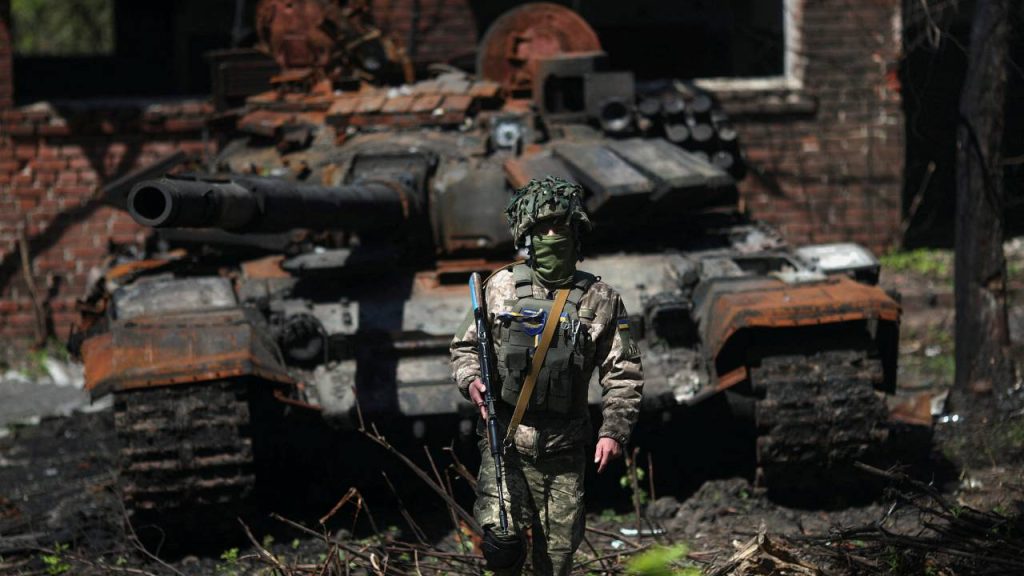
5. Constrain China — Stronger, Faster, Wider
The party-state in Beijing is the most substantial challenge to US and Western interests. Global perceptions of the United States’ willingness and ability to compete with, constrain, and, if necessary, successfully confront China are shaped by the US commitment to Ukraine.
China plays an ambiguous role in Russia’s war in Ukraine. Chinese diplomacy has supported but also constrained Russia, notably on nuclear saber-rattling. Other initiatives, such as China’s peace plan, have been slow, insubstantial, and ineffective.
The ILC does not recommend that the United States or its allies engage with China as a potential troubleshooter and peacemaker in Ukraine. China’s interests in postwar reconstruction, security, and rebuilding substantial prewar economic ties should be borne in mind.
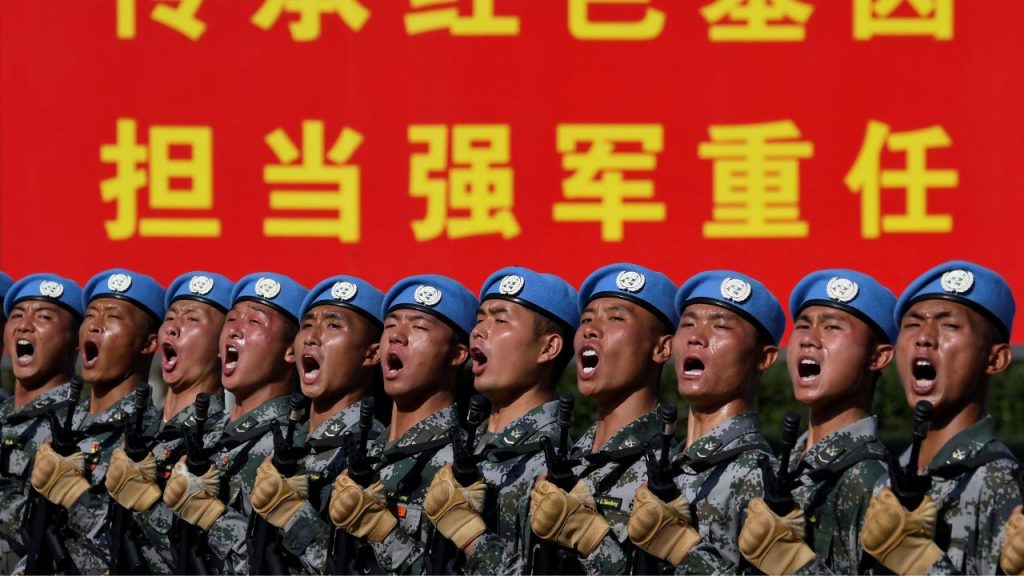
The United States and its allies are already engaged in strengthening military relationships in the Indo-Pacific theater to counter China’s rise. What attracts less attention is Chinese soft power, often in the form of the Belt and Road Initiative (BRI) in African, Latin American, and Asian countries. These countries fall outside the usual transatlantic security lens, but they matter. Ukraine has been surprisingly unsuccessful in attracting sympathy and support for its struggle against a former colonial master, even in countries that have themselves direct, recent, and bitter experiences of imperialism.
6. Embrace the “Global South”
Without the so-called Global South, the United States and its allies will not be able to solve century-shaping challenges such as climate change or migration, which, over time, have become inextricably linked. Moreover, it is in these regions and countries where great-power competition is acute. In this regard, the democratic West has not fully grasped the appeal of Russia and China, or the dissatisfaction and resentment the West has engendered during the past decades of colonialism, or during the Cold War, in the “Global South.”
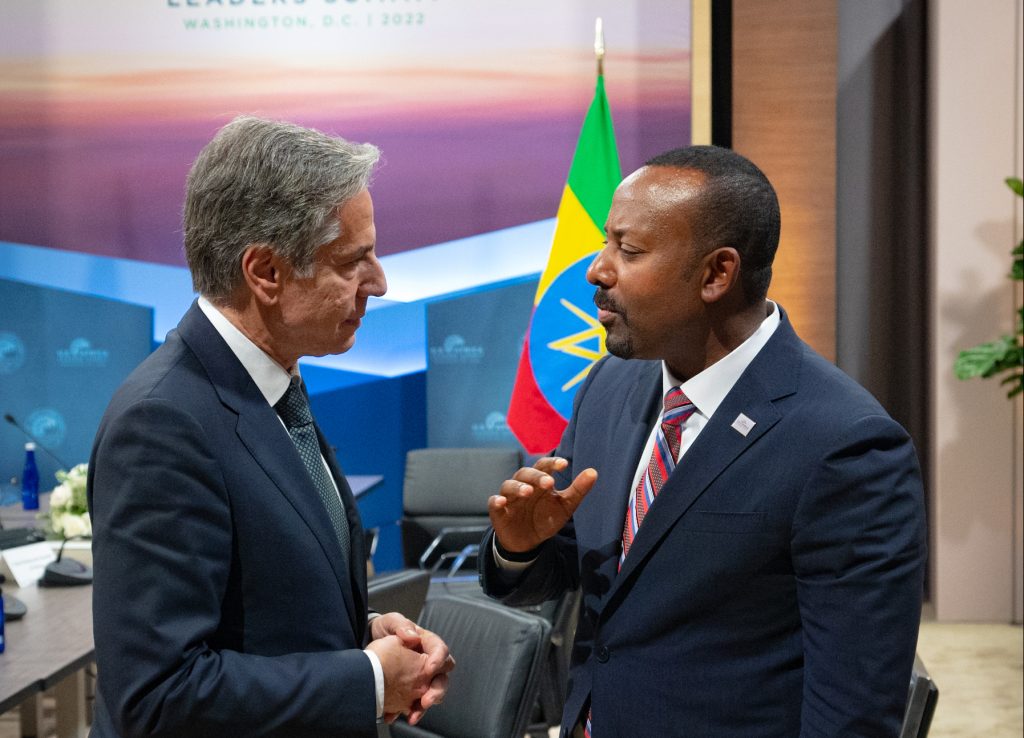
The ILC, therefore, recommends that alongside the United States, the EU and its member states leverage their soft power, development aid, and other influence in the “Global South.” Strategic exercise of these assets will add important impetus to US efforts and reinforce the value of the transatlantic security relationship in the minds of current and future US decision-makers.
This report does not reflect the specific views of each participant. A full list of ILC members is appended.
ILC Co-Chairs
- H.R. McMaster, Fouad and Michelle Ajami Senior Fellow, Hoover Institution, Stanford University; Lieutenant General (Ret.), United States Army; US National Security Advisor (2017-2018)
- Annegret Kramp-Karrenbauer, Minister of Defence, Federal Republic of Germany (2019-2021)
ILC Members
- John Allen, Strategic Advisor, Microsoft; Four-Star General (Ret.), United States Marine Corps; Commander, NATO International Security Assistance Force (ISAF) and US Forces in Afghanistan (2011-2013); Special Presidential Envoy, Global Coalition to Counter the Islamic State (2014-2015)
- Karan Bhatia, US Deputy Trade Representative (2005-2007); Global Head, Government Affairs and Public Policy, Google
- Stephen Biegun, Senior Vice President of Global Policy, The Boeing Company; Visiting Policy Practitioner, Weiser Diplomacy Center, University of Michigan
- Carl Bildt, Prime Minister, Kingdom of Sweden (1991-1994); Minister for Foreign Affairs, Kingdom of Sweden (2006-2014); Special Envoy for the Access to COVID-19 Tools Accelerator, World Health Organization
- Francis Fukuyama, Political Scientist; Author of “The End of History and the Last Man”; Olivier Nomellini Senior Fellow, Freeman Spogli Institute for International Studies, Stanford University
- Timothy Garton Ash, Historian; Political Author; Professor of European Studies, Oxford University
- Toomas Hendrik Ilves, President, Republic of Estonia (2006-2016); Minister of Foreign Affairs, Republic of Estonia (1996-1998, 1999-2002); Member of the European Parliament (2004-2006)
- Boris Johnson, Prime Minister, United Kingdom of Great Britain and Northern Ireland (2019-2022)
- Matthew Kaminski, Editor-at-Large, POLITICO
- David J. Kramer, US Assistant Secretary of State for Democracy, Human Rights, and Labor (2008-2009); Executive Director, The George W. Bush Institute
- Ivan Krastev, Political Scientist; Author; Chair, Centre for Liberal Strategies
- Linas Linkevičius, Minister of Foreign Affairs, Republic of Lithuania (2012-2020); Minister of National Defence, Republic of Lithuania (1993-1996, 2000-2004)
- Anja Manuel, Executive Director, Aspen Strategy Group and Aspen Security Forum; Co-Founder and Partner, Rice, Hadley, Gates & Manuel LLC
- Zhanna Nemtsova, Co-Founder, Boris Nemtsov Foundation for Freedom
- Ine Eriksen Søreide, Minister of Foreign Affairs, Kingdom of Norway (2017-2021); Minister of National Defense, Kingdom of Norway (2013-2017); Member of Parliament, Kingdom of Norway
- Stephen Twitty, Lieutenant General (Ret.), Deputy Commander, US European Command (2018-2020); Founder, Twitty and Associates LLC
- Eckart von Klaeden, Member of Parliament, Federal Republic of Germany (1994-2013); Vice President and Head of External Affairs, Mercedes-Benz Group AG
CEPA ILC Leadership
- Dr. Alina Polyakova, President & CEO, Center for European Policy Analysis
- Edward Lucas, Senior Adviser and Senior Fellow, Center for European Policy Analysis
- This unsatisfactory term refers to low- and middle-income countries of Latin America, Sub-Saharan Africa, the Middle East and North Africa, the Indian subcontinent, Southwest and East Asia, and other regions. The authors are aware that these countries differ sharply in size, prosperity, geopolitical outlook, and other respects. They share some common factors though. They are underrepresented in terms of voting rights in many multilateral organizations, they did not contribute to global warming through past carbon-heavy industrialization, and they have not benefited proportionately from the international system’s provision of public goods. [↩]
- Joe Biden, “Remarks by President Biden on the United States’ Response to Hamas’s Terrorist Attacks Against Israel and Russia’s Ongoing Brutal War Against Ukraine,” The White House, October 20, 2023, https://www.whitehouse.gov/briefing-room/speeches-remarks/2023/10/20/remarks-by-president-biden-on-the-unites-states-response-to-hamass-terrorist-attacks-against-israel-and-russias-ongoing-brutal-war-against-ukraine/#:~:text=American%20leadership%20is%20what%20holds,it’s%20just%20not%20worth%20it. [↩]

